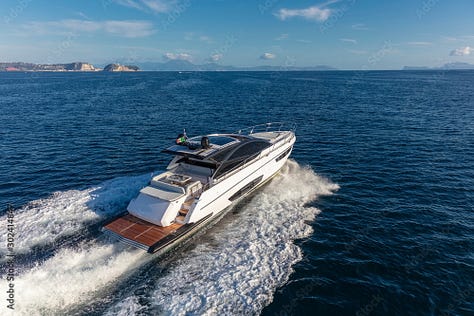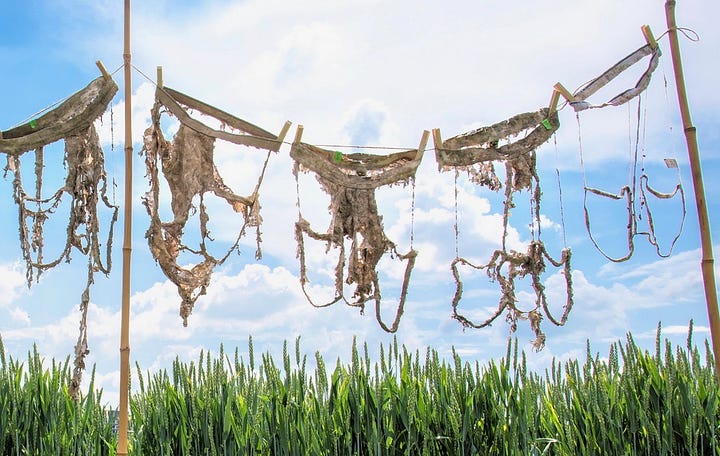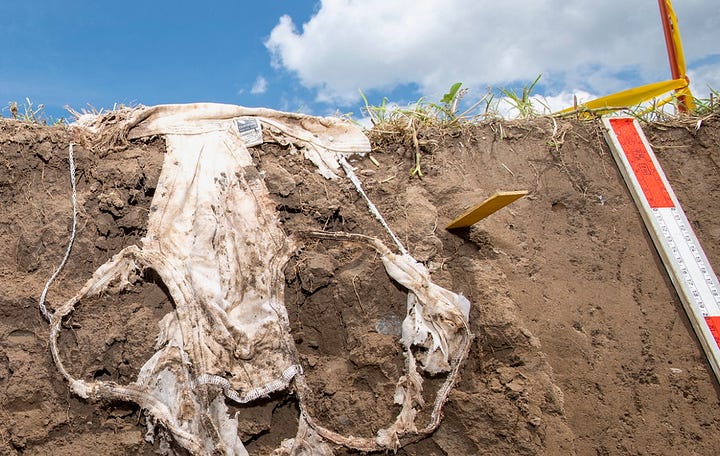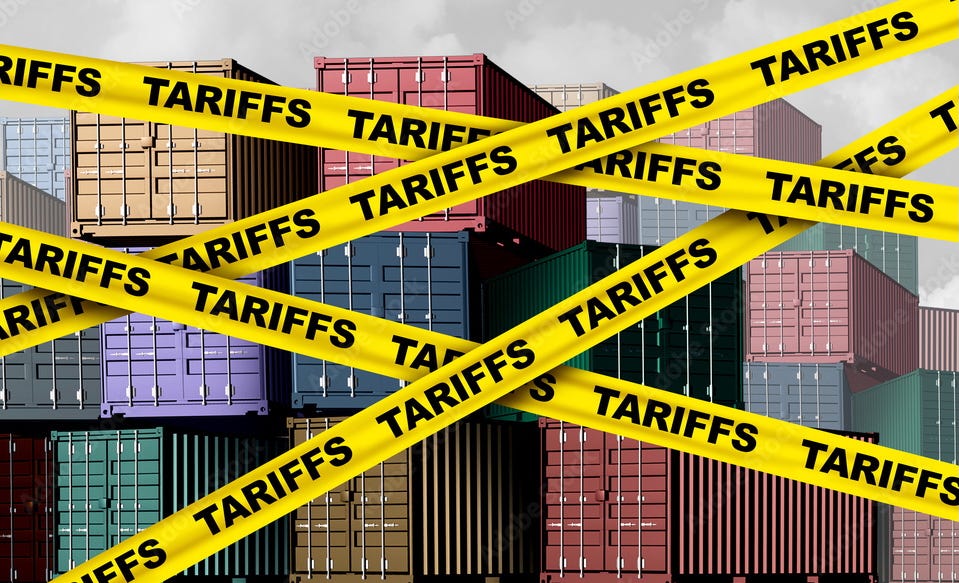It is not April Fool’s Day; we did that already. However, it is time for another annual Swiss ritual that, depending on one’s perspective, is either hilarious or deadly serious. The nominees for the “Rusty Paragraph” award have been announced and voting has commenced.
(We vote a lot here, which is great sport for a news omnivore like me. For my nine loyal readers – you know who you are – there is a poll at the bottom of this article, and a chance to make a mark in the real “Rusty Paragraph” competition. But please read on to find out what you’re getting into.)
The Rostiger Paragraph/Paragraphe rouillé prize is given each year to Switzerland’s most superfluous piece of legislation or unnecessary political initiative by an organization called IG Freiheit1.
This organization was founded in 2006 by a group of politicians and entrepreneurs who felt that regulation was getting out of hand. According to their own mission statement, IG Freiheit is
a non-partisan association of individuals who are committed to defending the civil liberties of citizens and opposing the enactment of unnecessary government regulations.
Lest you think that such declarations lead to unbridled neoliberalism and regulatory chaos (yes, I am looking at you, US of A), please remember this is Switzerland. In true Swiss consensus style, the organization’s board includes representatives from German, French, and Italian language regions; the president of the Swiss Trade Association; and members of the federal parliament as well as several cantonal legislative councils. Political parties represented include the center-right, free-market liberal FDP; the centrist former Christian democrats, now simply “the Center”; and the nationalist right SVP.2
How many rules are too many?
There’s a bon mot explaining the cultural difference difference between Switzerland and its northern neighbor Germany that goes something like this:
In Germany, everything is banned (verboten) unless it’s specifically allowed. In Switzerland, everything is allowed unless it is specifically prohibited.
This is not so far off. Upon moving here, my German spouse was amazed at the preponderance of free swimming. When it’s warm in the summer, people strip down and leap into the river or the lake in the middle of Zurich to cool down. If there is no “no swimming” sign, you can swim – at your own risk– anywhere.
You can well imagine that this desire for specificity can create some pretty bizarre regulations, and there is indeed no shortage of candidates for the “Rusty Paragraph” each year. The 18th annual award in 2024 went to the Zurich city councilor Simone Brander (SP, the often far left-of-center Social Democrats), who created a municipal compost inspection authority. Anyone living in Zurich who wants to compost in their own garden must register their compost heap with the city, and can expect that their private compost may be inspected by city employees at any time.
Tariffs have always been complicated
One of my all-time favorite nominees was the “Tariff classification of shorts3” in 2015. Following two rulings by the Federal Administrative Court, the Origin and Textiles Section of the Directorate General of Customs was forced to reformulate the tariff classification of shorts. A detailed definition (dated 3 July, 2014, No. 3161.71.2014) was provided to distinguish shorts from swimwear and underwear (boxer shorts). Sadly, this important piece of overregulation was beaten out by the ban on shopping bags with advertising slogans promoting spirits. Such bags are permitted but only if they are used to transport bottles of hard alcohol. Environmentally-aware shoppers keep their bags to reuse, though, and the risk that other items might be carried in a shopping bag emblazoned with Absolut was too great.
In 2022 the “cowbell curfew” won, another classic. The cantonal authorities in Aargau4 ruled that the “quiet hours” beginning at 10 p.m. apply to cows, not just to people. This put an end to the three-year-long conflict in the town of Berikon (a rural suburb of Zurich) between the farming traditionalists and the peace-and-quiet-seeking homeowners. The dispute was triggered by a resident who claimed he could not sleep through the night because of the cowbell noise. The farmer whose cows grazed in the picturesque meadows bordering on the complainant’s land was ordered to remove the bells from his flock between 10 p.m. and 7 a.m. He wisely decided that his cows would graze without bells forthwith. Who needs all that extra work?
Drumroll please: The five nominees for this year’s “Rusty Paragraph”
The city of Lucerne’s battle against overtourism is getting help at the national level, where parliamentarian David Roth (former president of the Young Socialists, now SP representative for Lucerne) has proposed a ban on rolling suitcases over cobblestones. Just because they are too lazy to carry their luggage, these unthinking hordes of tourists noisily disrupt daily life in picturesque locations all over Switzerland. Details of the proposal, such as who would be responsible for enforcement or what the penalty could be, are still under discussion.



Roth’s parliamentary colleague Franziska Ryser (Green Party, St. Gallen) is also in the running with her proposal to increase the value-added tax on “luxury goods.” While this would doubtlessly be helpful for the federal budget, the Swiss Federal Council has voiced its reluctance to define where “luxury” begins. Which car models are normal, which are luxurious? Should a meal at a Michelin-starred restaurant be taxed differently than one at a sushi bar?
Also at the national level: Eva Reinhard, managing director of Agroscope, the Swiss federal research center for agriculture, is nominated for launching a new edition of a “citizen science project” to assess soil quality throughout the country. After 1,000 amateur researchers participated in 2021, Agroscope again exhorted citizens to bury their (cotton) underpants in their gardens, meadows, or fields.


The undies, or what remains of them, are exhumed a few weeks later and sent in for analysis. The new campaign has not only its own “Underwear Evidence” website, but its own app and even a map showing where underwear has been buried. Although the governmental website points out that most of the funding comes from six different foundations, the no-expenses-spared effort raised enough eyebrows to earn a nomination.
On a municipal level, Zurich city councilor and head of the municipal building department André Odermatt (left-of-center SP) takes one for the team with the “Tramdepot” public housing development. The city spent 200 million Swiss francs to build 193 subsidized apartments on the Limmat river, with a million-dollar view over the city and lake. Competition to move into one of the new flats this summer is keen; Zurich suffers from a lack of housing in all price categories. Good news, then? Maybe. The income qualifications for the new apartments are shockingly liberal: one can earn up to 182,000 francs (190,000 euros or 220,000 US dollars) a year. Renters must merely sign an agreement that they will not own a car.5 What ever could be next, subsidized housing for rich vegans?
And finally, in Lausanne, city councilor Ilias Panchard (Green Party) succeeded in convincing the council to approve his ban on weapons for city police officers. The reasoning is that guns are unnecessary for community policing or just driving around in a police car. A small number of the 500-strong force will be permitted to carry weapons, so that the unarmed officers who find themselves involved in shootings can call for backup. The Lausanne police and city government do not think this is such a great idea, however.
Not a trick question!
There is no right or wrong answer in this poll, and nothing tricky this time. I promise.
For extra credit, If you’d like to cast a vote in the real online contest to determine the winner, you may do so on the IG Freiheit website, available in German and French and with a link to a PDF explanation of the candidates in Italian as well. It’s unclear exactly when the official voting closes, but the award will be announced on 12 May at a ceremony in Zurich. As befitting one born in Chicago, I encourage you: Vote early, vote often!
IG does not mean Instagram. Or “I guess” (as a list of youth code abbreviations tells me).
In German, IG is the official abbreviation for Interessengemeinschaft, which translates as “interest group” but somehow this seems much looser in English. According to various legal lexica, a proper IG is “an association of individuals or organizations that pursue common interests and join forces to achieve these interests.”
The only established governmental parties not included are the left-of-center SP (social democrats) and their allies on the left, the Green Party, perhaps because their members are too busy writing nanny-state laws.
The differences are striking. While swimwear is usually made of lightweight, quick-drying fabrics and is opaque even when wet, this is not necessarily the case for underwear or shorts, which might not be opaque when wet. Swimwear usually has an inner brief, but no opening, while underwear never has an inner brief and shorts almost never do, but they regularly have an opening. Another distinguishing feature can be the pockets: Underpants never have pockets, shorts almost always have several, while the pockets on swimwear, if present, are generally decorative.
My canton of residence – which for the allegedly mundane Zurich residents (whose farms, vineyards, and suburban shopping malls are less than a kilometer from my house) is the equivalent of “bridge and tunnel” for Manhattanites.
The underground garage has 670 parking places for bicycles, though.







Buried underpants, while silly, seems more experiment than regulation. Should be disqualified, IMHO. But the tourist-unfriendly ban on wheeled suitcases is, well, unfriendly.
"a ban on rolling suitcases over cobblestones" 😂
this would bring my city in Portugal to a halt, because even the university students use roller bags